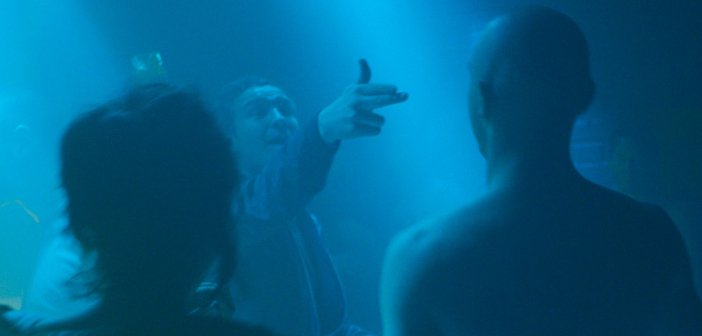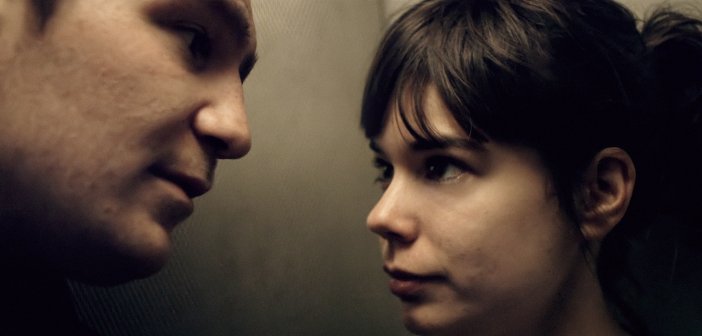Victoria is the One Take, Single Shot Film You’ve Been Waiting For
Forget Batman v Superman, Victoria is the most ambitious film you’ll see this year.
The first and most obvious ambition is technical – Victoria is filmed in one roving long take over 2 hours and 20 minutes, criss-crossing the Kreuzberg district of Berlin. We follow the eponymous heroine Victoria through tower blocks, clubs, cafes, shops, hotels and across many streets. Not only is all this done seamlessly, but the framing changes constantly to direct the audiences attention, building tension and dropping subtle narrative hints.
Now, I’m dubious of long takes. I think sometimes for directors they can be dick measuring contests – easy displays of virtuosity, the cinematic equivalents of guitar solos – a very overt way to show off your craft. For example, I hated Birdman, and thought the long take just gave artistic credibility to pretentious nonsense. I think they’re brilliant when they have a purpose, such as to join together the different elements of a world (The Player), to make the audience aware of time passing (Touch of Evil), or to show the power of a protagonist (Goodfellas). When they don’t have any reason to exist, they can feel like smug devices serving the director’s ego. In Victoria, it’s difficult to imagine the film without the long take, because it so perfectly suits the themes and narrative of the film. While the long take is impressive (and, unlike Birdman, there are no invisible cuts), that’s nothing compared to what else the story attempts.

At first it seems simple. At 4 a.m., amid a massive throbbing crowd in a Berlin club, the camera finds Victoria, a girl in her mid 20’s dancing alone, looking like a Spanish Minnie Mouse. She fails to chat up a bartender and then, on her way out, bumps into four rowdy Berliners just as the bouncers kick them out. Wheeling along her bike, she chats with one of them – Sonne – and is intrigued enough by his charm to join the 4 men for drinks. For the first act, we’re mainly following this little group, and the film perfectly captures the rhythms of drunken flirting and the bravado of old male friends. Then, suddenly, the dynamic of the film changes completely. Don’t read any further if you intend to see it, because the experience of the film is so much better if you’re caught unawares. But if you’re on the fence about going, then read on.
A phone call comes in, and now the 4 boys need a favour – a driver for a job – and Victoria is very swiftly plunged into a heist scenario. It’s one of the most audacious genre-switches I’ve ever seen on screen. And that’s when the purpose of the long take reveals itself – it’s not just a gimmick, it’s there to keep the audience engaged in the present moment while the situation changes all around them. It’s a bridge, connecting up two very different plots and tensions, via the emotional connection with the central characters. It’s like the distraction in a magic trick – you’re so engrossed in the relationships that you don’t find the transformation outlandish. Immersed in Victoria’s experience, you feel the terrifying shift from a random night to an intense and bewildering criminal enterprise, and this feeling is the ‘join’ that the film can use, the central current that brings you from one film genre to another.
The film reminded me of Tarantino’s promise, when he was publicising Reservoir Dogs – ‘We’re gonna sell you this seat, but you’re only gonna use the edge of it’. I can’t remember the last time I felt such incredible tension in a cinema. You know the feeling of waves of fight-or-flight preparedness that shiver through your body during tense scenes? To freeze up and release, forget to breathe for a few seconds and then loosen? Why are they so pleasurable, that we seek them out? I think maybe it’s the novelty of feeling that tension we sometimes lack in our everyday life. Victoria is a workout, where you’ll feel some of the most brilliant suspense, and leave the film with the palpable relief of escaping its grip.

Looking closer at the story, there’s some great craft going on. The film is like a ‘relay race’ of plot tensions – one plot ‘query’ will take you through scenes to the next major ‘query’. So, at the start we’re worried about these men Victoria meets – are they harmful? and will she go with them? – until this segueways into a romantic tension – who does she like? will she kiss Sonne? – and then it all morphs into the high-stakes questions of the heist. One of the biggest surprises of the production is that the script was only 12 pages long, with the vast majority of it improvised around the different beats of the plot. It’s a testament to the performances that the romantic tensions and the heist tensions are both equally engrossing in completely different ways. Another smart decision is to have two languages at play throughout. Victoria can’t speak German, and so while she communicates with the four men in English they speak German to each other. At different points we’ll know through subtitles what they’re saying, and what danger is coming around the corner, but Victoria is oblivious. The dramatic irony of knowing more than her often doubles the tension we feel for her.
Beyond all the suspense, the film delivers an overall feeling not unlike Run Lola Run: the surprising ways that life can change dramatically because of a series of small decisions. It’s one of the main ideas that runs throughout the dialogue too. One of the most heartfelt and quiet moments comes when Victoria plays a piece on piano for Sonne, and tells him of all the thousands of hours of practice she spent to become a professional pianist, practice that led nowhere. Through the first act we see how random encounters can give you a window into a persons life and all the choices that have brought them here. When you meet someone new you can feel such joy at discovering new surprises from their past every few minutes, but also sadness and regrets that feel just as precious, drawing you closer. The second and third acts immerse us in one of those major choices and the consequences for all of the characters destinies. In the end, the long take not only glues together the two genres, but by adopting it we feel more keenly how choices made in a short space of time can have massive repercussions.
Victoria is in cinemas from Friday 1st April. Check out the trailer below.
[youtube id=”e9tKRK2qj0I” align=”center” autoplay=”no” maxwidth=”750"]
Featured Image Source

